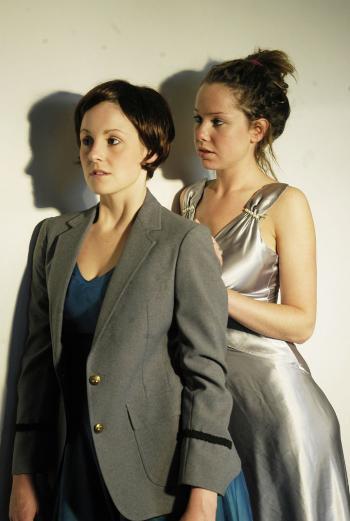
News
‘Deal with the Devil’: Harvard Medical School Faculty Grapple with Increased Industry Research Funding

News
As Dean Long’s Departure Looms, Harvard President Garber To Appoint Interim HGSE Dean

News
Harvard Students Rally in Solidarity with Pro-Palestine MIT Encampment Amid National Campus Turmoil

News
Attorneys Present Closing Arguments in Wrongful Death Trial Against CAMHS Employee

News
Harvard President Garber Declines To Rule Out Police Response To Campus Protests
Coming Soon to a Harvard Theatre...
‘Abu Ghraib’ Tells Both Sides of the Story

ABU GHRAIB
Location: Loeb Experimental Theatre
DATEs: May 12 -14
Director: Currun Singh ’07
Producer: Xin Wei Ngiam ’07
The idea that politics and theater are of a single piece is at least as old as Cicero’s “de Officiis.” But Currun Singh ’07 and Xin Wei Ngiam ’07, writer and producer of “Abu Ghraib” speak about the political mission of their newest project with a fervor not frequently seen in undergraduate theater.
Both sophomores, both social studies concentrators, both having with some experience in more traditional Harvard productions—Singh and Ngiam came together early this year, shortly before applications for the Loeb Ex were due, with an unusual project: a docu-drama about the torture of inmates at Abu Ghraib by American soldiers.
“We’re both interested in issues of social justice,” Xin Wei explains. The two are committed to using their work to explore issues related to torture and human rights violations.
Partially inspired by the political satire “2004: An Election Year Odyssey,” in which he had acted, Singh started working on the script for “Abu Ghraib” in November. It is loosely focused on the story of Joseph Darby, the U.S. reservist military police officer in Iraq who turned over the now-infamous CD containing the photos of soldiers abusing inmates in the prison.
However, Singh says he tried “to get a mix, to chronicle the experience of both army officials and prisoners.” The script includes extended scenes of soldiers and army officers interacting with one another, as well as terrorizing their victims. Singh culled his material from testimony, books, and news reports. “There’s a lot of literature out there. I took ideas, emotions, and statements and put them together.”
In addition to attempting to address the psychology of the various individuals involved, “Abu Ghraib” explicitly addresses certain questions regarding American perceptions of the scandal and various gaps within American media coverage.
“The mistrust of the American media is something we’re very cognizant of,” Singh says. “We want to bring out the contrasts between what people have seen and what they haven’t.”
One of the techniques the show deploys to this end is film montage. Ngiam explains that she and Singh have made a “short history of American human rights abuses” spliced from various archival films. The multimedia effects were made possible, to a large extent, by Ngiam’s prodigious fundraising efforts (she managed to secure $3,450 in funding, far exceeding the standard $500 budget allocated by the HRDC).
Singh and Ngiam also send weekly news bulletins out to their cast, mostly from CNN.com, the New York Times, and the Village Voice, although they stress that, unlike the current media focus, the themes underlying the production are not ephemeral. “The show has grown in its own way, but the message itself has been pretty constant,” Ngiam says.
“The experience has been very rewarding,” Singh concludes. “We have intense discussions about Abu Ghraib, about what theater means, about what politics mean. From a theoretical perspective, it’s very interesting.”
“But it has also been difficult. One obstacle we encountered that we wouldn’t have had if we had done—well, say, ‘The Crucible’—is that this show is very controversial. It has a provocative nature, provocative design, and provocative content. Many people might interpret it as voyeuristic or tasteless.”
Questions regarding the extent to which the real horrors of war can, or should, be represented on stage are complicated—and the verdict in this case will obviously depend to a large extent on the visual effect of the production.
Singh claims to be confident that he and Ngiam have “chosen a comfortable middle ground.” “There is a place for violence on stage. We’re treating it in a way that is responsible and that won’t merely be written off as ‘arty.’”
In any case, with some producers outside of Harvard inquiring after the show, Singh and Ngiam have attained what they agree is their primary goal. “We’re hoping to get people to talk about “Abu Ghraib” in a way they won’t discuss other shows,” Ngiam says.
Singh agrees: “Ultimately, I cannot say that a show like this will be fun. But you can say that it will be interesting. We don’t want people to leave saying, ‘Okay, where’s the party?’ or ‘What’s for dinner?’ I think we want people to come out thinking.”
Want to keep up with breaking news? Subscribe to our email newsletter.
